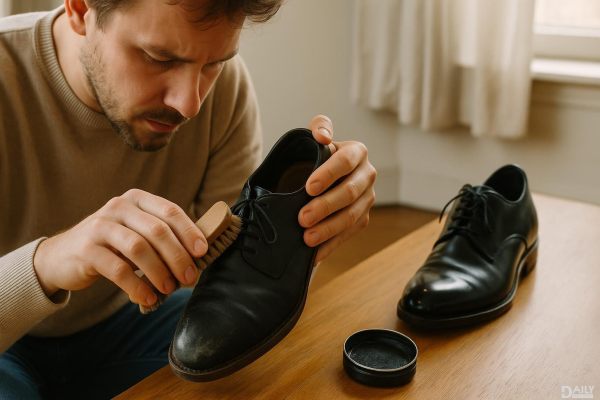Ever jolted awake at 3 AM drenched in sweat after dreaming your teeth were falling out while being chased through a maze by your high school math teacher? Welcome to the wild world of anxiety dreams, where your subconscious takes everyday worries and turns them into full-blown horror movies starring... you. That sinking feeling when you realize you're naked in public during a work presentation? Classic anxiety dream material. The good news? You're not alone, and there's actually some fascinating science behind why our brains do this to us.
The Science Behind Anxiety Dreams
Your brain is basically running overnight system updates while you sleep, and sometimes those updates come with some seriously trippy visuals. During REM sleep (that deep dream phase where your eyes dart around like you're watching tennis), your amygdala - the brain's fear center - goes into overdrive while your prefrontal cortex (the logical CEO of your brain) takes a coffee break. This creates the perfect storm for anxiety dreams to flourish. Researchers at Harvard found that people with higher daytime anxiety levels experience more intense emotional content in their dreams, particularly negative emotions. It's like your brain's way of saying "Hey, remember that awkward thing you said five years ago? Let's relive it in vivid detail at 2 AM!"
Common Anxiety Dream Themes
Anxiety dreams love recycling the same nightmare fuel across different people. That dream where you're back in school and realize you forgot about the final exam? Universal. Being chased but moving in slow motion like you're running through peanut butter? Classic. Other frequent flyers include showing up to work naked (the corporate nightmare version of forgetting your pants), teeth crumbling like stale cookies (symbolizing loss of control), or being trapped in elevators that morph into rollercoasters (because regular anxiety wasn't exciting enough). These themes often represent deeper worries about competence, preparedness, or vulnerability in waking life.
Why Your Brain Does This
Contrary to feeling like your mind is torturing you for fun, anxiety dreams might actually be your brain's weird attempt at self-therapy. The threat simulation theory suggests dreaming helps us practice handling stressful situations in a safe environment. Think of it like your brain's version of flight simulator training - except instead of learning to land planes, you're rehearsing how to handle social embarrassment or work stress. Some psychologists believe these dreams help process emotional memories, filing away the important stuff and tossing the mental junk mail. Problem is, when you're already anxious, this system can get stuck on overdrive like a broken record of your worst fears.
Breaking the Anxiety Dream Cycle
While you can't completely veto bad dreams (thanks, brain), you can stack the deck in your favor. Start with a "worry dump" session 2-3 hours before bed - literally write down every anxious thought to get it out of your head. Create a bedtime ritual that doesn't involve doomscrolling (try the 4-7-8 breathing technique instead). Keep your bedroom slightly cool (around 65°F is the sleep sweet spot) and consider weighted blankets that feel like a gentle hug all night. If you wake up from a nightmare, try "dream rescripting" - rewrite the ending in your mind where you turn into a superhero or the monster becomes a kitten. It sounds silly, but it helps retrain your brain's response.
When to Seek Help
While occasional anxiety dreams are normal, they cross into red flag territory when they start affecting your daytime functioning. If you're experiencing night terrors (different from nightmares - these come with screaming, thrashing, and no memory afterward), sleep paralysis (waking up unable to move - yes, it's as horrifying as it sounds), or recurring trauma-related dreams, it's time to call in the pros. Cognitive behavioral therapy for insomnia (CBT-I) has shown particular success in reducing anxiety dreams by targeting the thought patterns that fuel them. Sometimes medication can help too, especially if your dreams are linked to PTSD or severe anxiety disorders.
Remember, your anxiety dreams aren't prophecies or signs you're going crazy - they're just your brain's dramatic way of processing stress. The next time you dream you're back in high school unable to find your locker, try laughing about it over coffee instead of dwelling. After all, if your subconscious is going to put on these bizarre midnight shows, you might as well grab some popcorn and appreciate the creativity.
























